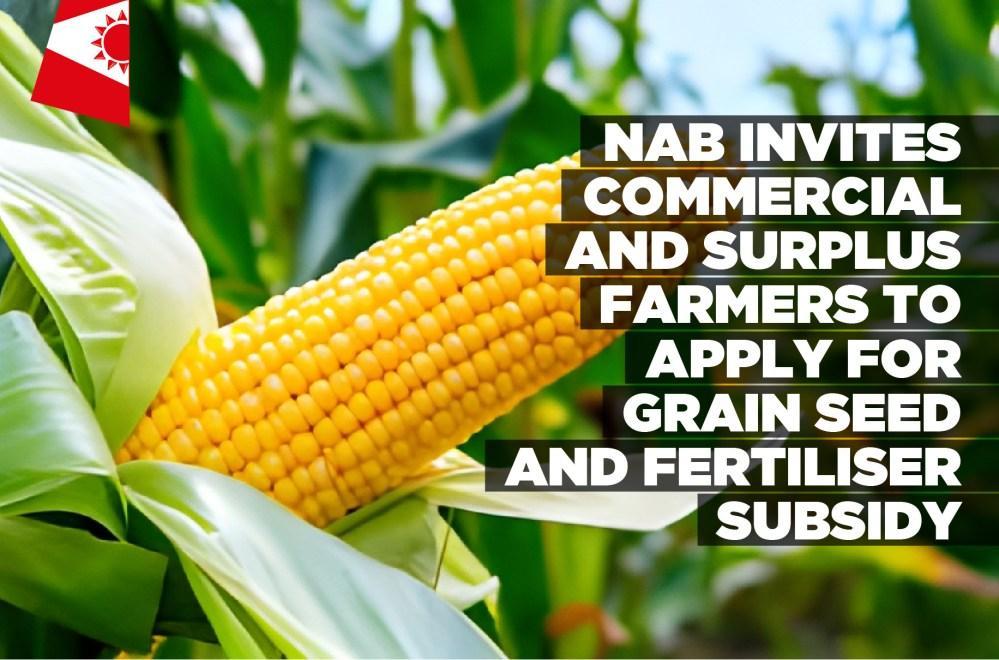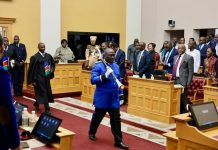Africa-Press – Namibia. THE Namibian Agronomic Board (NAB) is inviting commercial and surplus farmers to apply for its subsidy on grain seeds and fertilisers.
The NAB explained that it launched the National Drought Support Programme for Surplus and Commercial Grain Producers (NDSP-SCP) on 19 September 2024 to help grain farmers recover from the 2023/2024 drought, given the positive rainfall forecast for the 2024/2025 season. The programme will run until 15 February 2025.
“This programme provides a subsidy through a refund claim system on seeds (white maize and pearl millet) and fertilisers for rainfed production, and strictly targets commercial and surplus farmers who planted and marketed maize or Mahangu grain to millers since 2021. The subsidy will be proportionally shared amongst all six grain production zones of Namibia, but on a first-come, first-served basis,” the NAB added.
The Agronomic Board explained that a 10% subsidy on white maize seeds and fertilisers is offered, calculated based on the total invoice amount from agri-input suppliers approved by the NAB. This subsidy, the NAB added, is limited to a minimum of 5 hectares and a maximum of 50 hectares per farmer for rainfed production.
Regarding seeds, the Board explained that a subsidy limited to 13kg of white maize seeds per hectare is provided. Farmers are encouraged to plant drought-tolerant varieties available on the market. For fertilisers used for maize, the NAB revealed that the subsidy is limited to 150kg (three bags of 50kg) of MAP or NPK fertilisers per hectare, and 100kg (two bags of 50kg) of urea, ammonium sulphate, or limestone ammonium nitrate per hectare.
For Mahangu seeds and fertilisers, the NAB explained that the subsidy is limited to a minimum of 5 hectares and a maximum of 10 hectares per farmer for rainfed production.
“This is a 20% subsidy on certified Mahangu seeds and 10% on fertilisers, calculated based on the total invoice amount from agri-input suppliers approved by the NAB,” the Board added.
With regard to Mahangu seeds, the NAB said the subsidy is limited to 6kg or three bags of 2kg of Mahangu seeds per hectare. Farmers are encouraged to plant drought-tolerant local varieties such as Okashana, Kangara, and Kantana. For fertilisers used for Mahangu, the NAB revealed that the subsidy is limited to 100kg (two bags of 50kg) of MAP or NPK fertilisers per hectare, and 50kg (one bag of 50kg) of urea, ammonium sulphate, or limestone ammonium nitrate per hectare.
To qualify, the NAB highlighted that applicants must be Namibian citizens or business entities registered in Namibia, be surplus or commercial white maize or pearl millet farmers registered with the NAB, have planted and marketed white maize or Mahangu grain to millers or silos between 2021 and 2024, and plant a minimum of 5 hectares and a maximum of 50 hectares for white maize rainfed production, or a minimum of 5 hectares and a maximum of 10 hectares for pearl millet (Mahangu) rainfed production.
The Subsidy Refund Claim Form is available at www.nab.com.na. Completed forms must be submitted to the NAB along with all required attachments (a paid supplier invoice/receipt and a copy of the applicant’s ID or land ownership certificate) within 30 days of purchasing seeds and fertilisers.
For More News And Analysis About Namibia Follow Africa-Press






